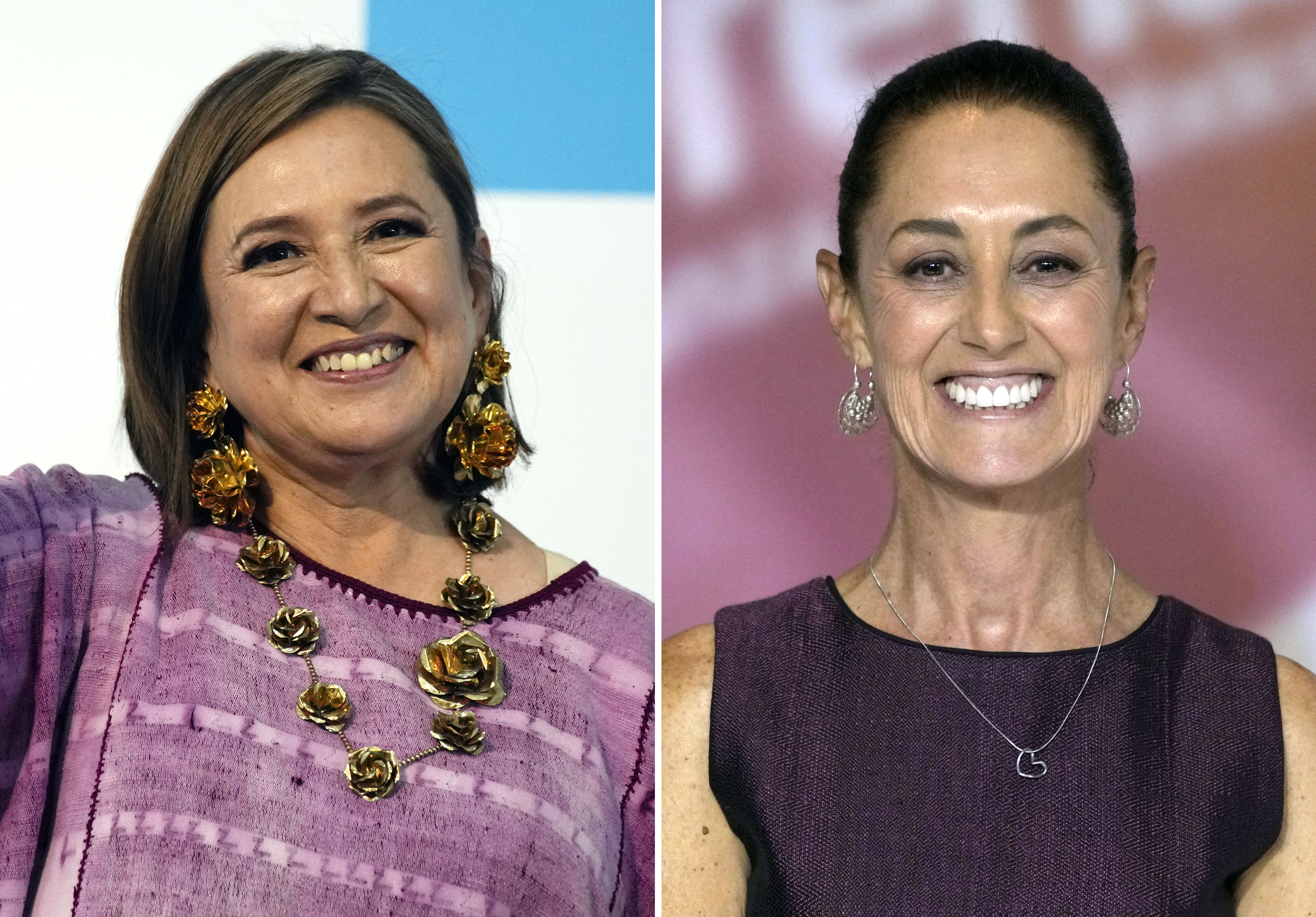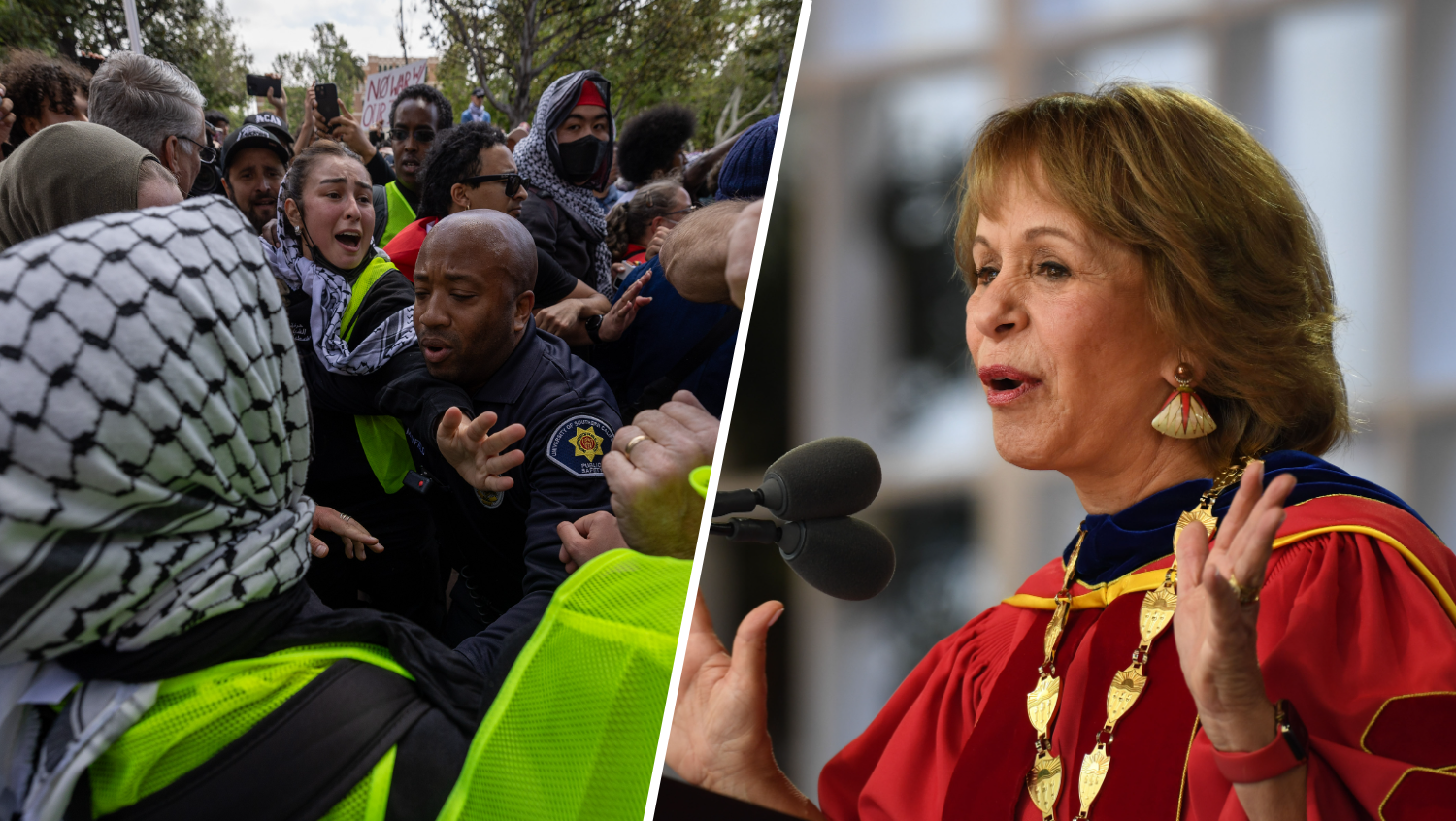Two months after a Southern California barber cited scripture as a reason for denying a haircut to a transgender Army veteran, Kendall Oliver has filed suit, alleging a violation of civil rights.
Oliver, an Army reserve sergeant who served in Afghanistan, filed a lawsuit against The Barbershop in Rancho Cucamonga, citing an incident last March when the shop refused to cut Oliver's hair.
"What I'm looking for today is to make sure this never happens again to someone else," said Oliver, who was born female but identifies "more as male."
Owner Richard Hernandez said in March that his Christian religious beliefs forbid him from cutting a woman's hair.
"It is a shame for a man to have long hair. But if a woman has long hair, it is her glory," Hernandez told NBC4's Mekahlo Medina in March, paraphrasing scripture, the Apostle Paul's first letter to the Corinthians, 11:15.
"I don't want to be one who's taking away from her glory," Hernandez said.
Oliver's attorney contends the central issue is equal rights.
Local
Get Los Angeles's latest local news on crime, entertainment, weather, schools, COVID, cost of living and more. Here's your go-to source for today's LA news.
"Freedom of religion is important and it's protected," said attorney Peter Renn of Lambda Legal, which works on behalf of LBGT rights. "What it doesn't do is give anyone the right to cause harm to someone else, or for one person to inflict their religious beliefs on someone else."
The Barbershop declined comment on the lawsuit Wednesday. An employee said the owner was out of town.
"The odds of the barber being able to implement this policy are extremely low," said Michael Helfand, a legal scholar not involved in the case. An associate professor at Pepperdine University School of Law, Helfand is an expert on religious law and religious liberty.
Unless the owner operated The Barbershop as a private club, it would be considered a public accommodation, and as such cannot discriminate on the basis of sex under California law, Helfand said.
The calculus likely would be different in other states that have enacted what are known as religious freedom laws, modeled after the 1993 federal Religious Freedom Restoration Act, according to Helfand.
"In those states, he might have a fighting chance. In those states, a law that prohibited him from implementing his religious beliefs in his commercial enterprise -- such a law might be deemed to actually substantially burden his religion, and therefore he'd be protected," Helfand said. "But California doesn't have such a law. California only prohibits laws from discriminating against religion. As a result, anti-discrimination laws don't discriminate against religion, they just implement neutral laws against everybody. As a result, he's unlikely to be successful in defending this suit."
Helfand personally favors state laws that enable courts to consider religious burden in complying with a law.
"In a case like this, though -- again -- to be clear, it's very likely that the public policy is extremely strong," he said. "But cases like this do raise the question as to whether or not California law should reconsider the fact that it does not have any kind of law in place that allows you to balance religion against other public policy interests."
Oliver spoke of feeling humiliated at being denied the same treatment provided to other customers that day at The Barbershop. In the view of Oliver's attorney, this case is about more than a haircut denied.
"No business has the right to inflict moral judgment," said Renn.



